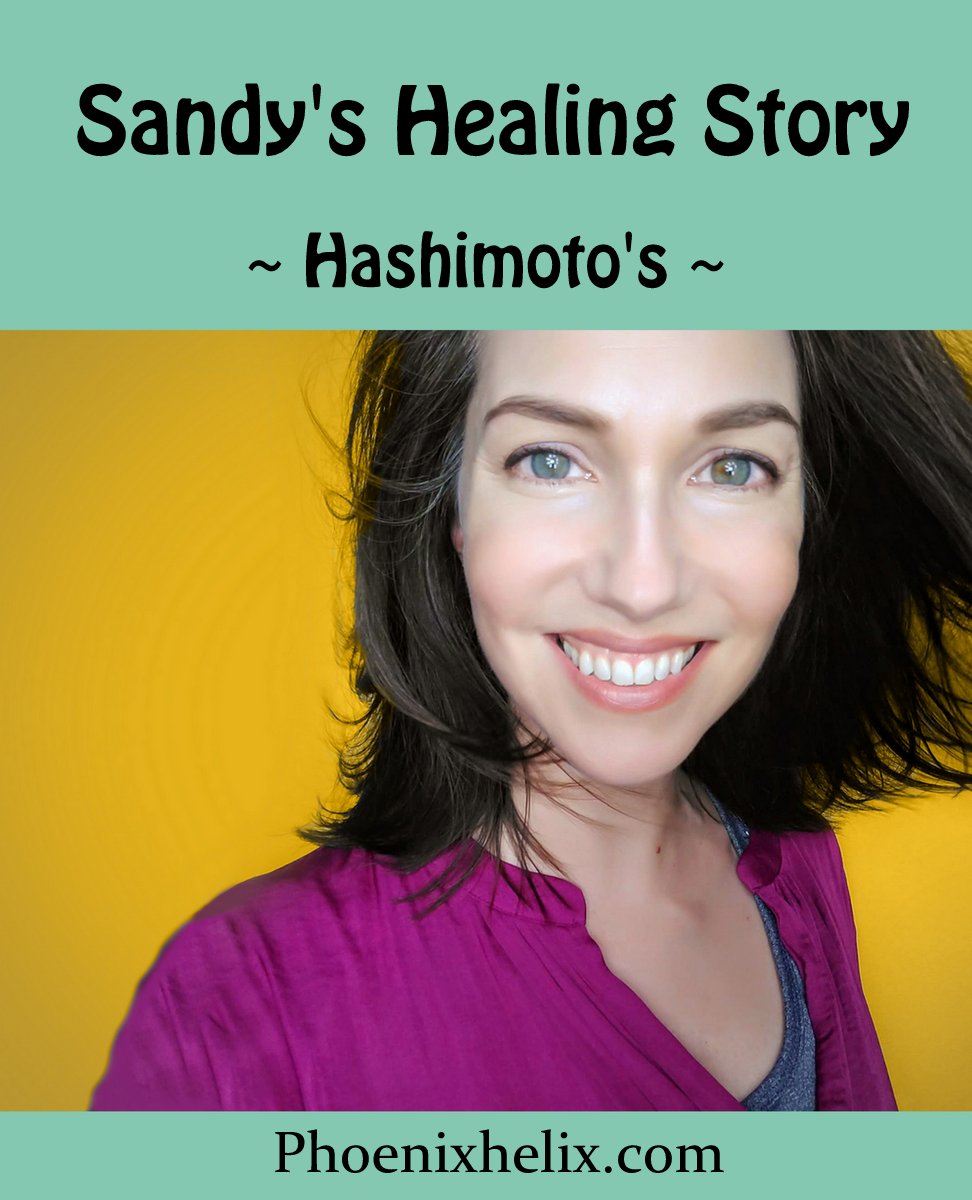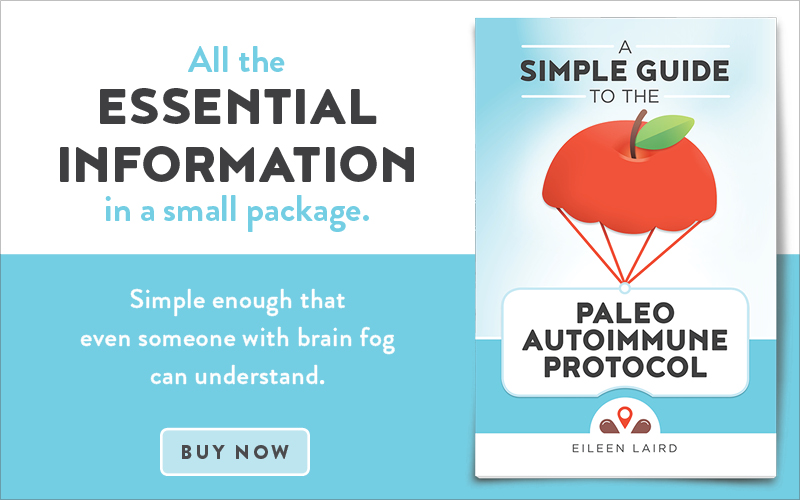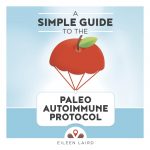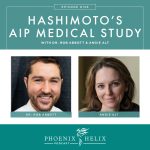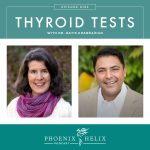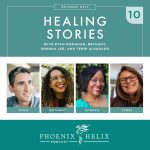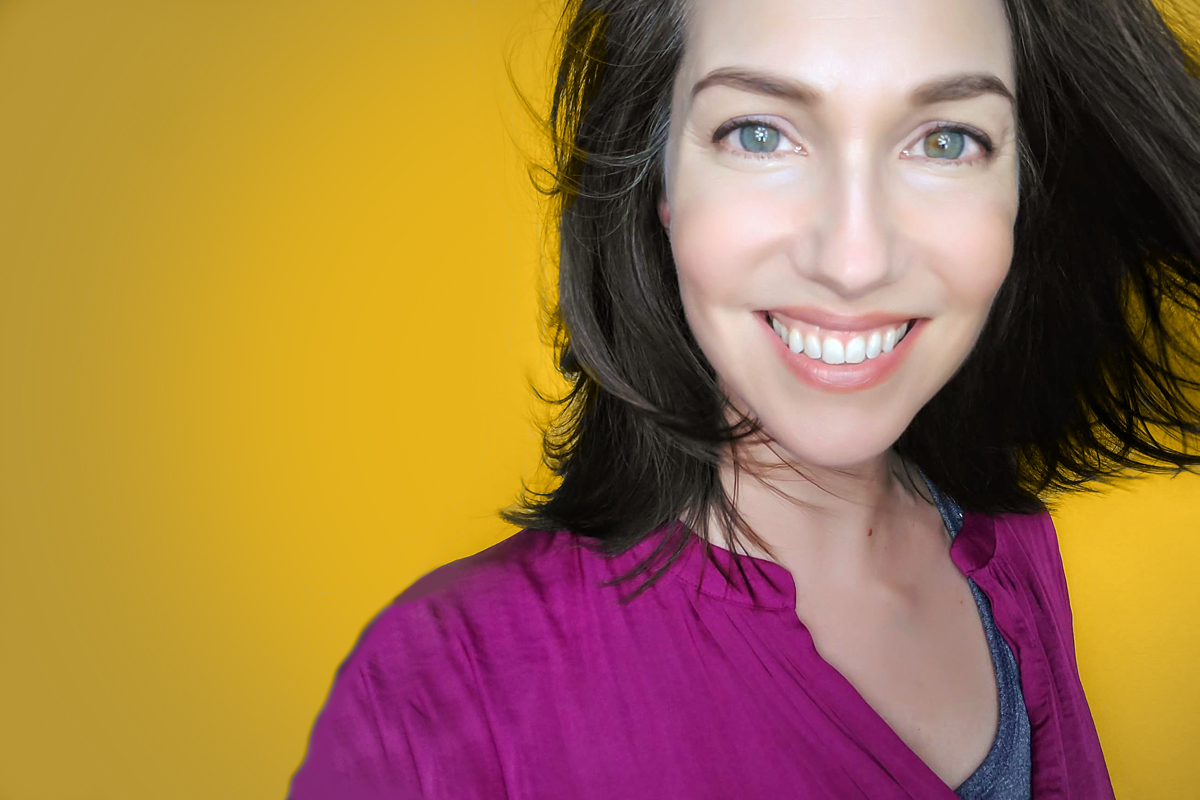
“I believe absolutely that it is in sharing the most vulnerable aspects of our journeys that we support each other to find grace and strength and healing during equally challenging times.”
~ Baden Lashkov
Living a Resilient Autoimmune Life
For Sandy Swanson, symptoms began subtly and progressed slowly. At first, she thought it might simply be a sign of aging, even though she was only in her 30’s at the time. Like many people with Hashimoto’s, it took years to discover the cause. By that time, her symptoms had worsened, and doctors routinely dismissed them as “all in her head.” She experienced a lot of medical gaslighting. In this interview, she shares her journey back to health, and the interventions that made the biggest difference!
What were your first symptoms? When did you learn what it was?
My first symptoms included anxiety, fatigue, insomnia, depression, severe muscle weakness, and infertility issues. They were subtle and slow, so much so that I didn’t really notice them – or thought they were just because of my age (I was in my late 30s at the time). Nothing was visible or apparent to anyone else; they probably just thought I was tired all the time. I was also losing a lot of hair, and had ear and throat issues (my ears would “close up” and my voice would be really “tight” – it was hard to speak). I learned it was Hashimoto’s about 3-4 years later.
Can you describe what it was like for you, when your condition was at its worst?
This time was quite a turning point for me. I experienced mainly brain issues (brain fog, word retrieval issues, memory loss, depression), which I know now is so closely tied to gut health. I was in a deep depression because I was having trouble becoming pregnant – I basically lay on the couch for hours and hours every day. I had no desire to eat, to go out, to see people….Doctor after doctor dismissed me, telling me to “just relax” and “don’t think so much” about trying to get pregnant – one said “take these antidepressants” because, well, obviously I was depressed. There was a lot of gaslighting. I felt unheard and unseen, and this just made things worse for me mentally.
So many people with autoimmune thyroid issues have misdiagnoses of depression, bipolar disorder, and other mental health concerns. Not ONE of the doctors I saw ever even considered testing my thyroid, which is really sad, as thousands of people (mostly women) are dismissed just like I was and told “It’s all in your head”. Our healthcare system is a mess, and I was unfortunately caught in the cogs of that ridiculous machine.
What medical treatments have you tried? What was helpful, and what wasn’t?
I’ve taken (and still take) medication (thyroid replacement hormone). It was a must for me. I really thought I could heal on my own, but this was before I understood that the keyword is *replacement*. If your thyroid gland isn’t making hormones, you gotta take meds. Every single cell in our bodies requires thyroid hormone, so denying those cells these hormones only meant more symptoms.
Heavy metal toxicity may have been an issue for me, so I went to Mexico in 2017 to get all the metal out of my mouth. I did not notice any immediate improvements, but healing seems to be slow and subtle for me….In the long run, I’m very glad I did this.
Which healing diet(s) did you try, and what were the results?
I was diagnosed in 2012. In 2015 I decided to remove gluten 100% from my diet for 30 days to see what happened. Nothing much ended up happening, as I never really “felt” any immediate symptoms from eating things (see above about things being subtle for me!) However, I “treated” myself to an evening of gluten after those 30 days of gluten-free living. Pasta, beer, cookies. What happened then was that I could not sleep that night – I was sweating like a racehorse! My clothes were soaked…it was really something AND surprising, as I didn’t normally have night sweats and wasn’t menopausal at the time. This was a clear sign that something was not right, and I have avoided gluten ever since.
Around that same time, I saw an acquaintance that I hadn’t seen in a while, and she looked fantastic. I asked her what was going on, and she said “I have this thing called Hashimoto’s… and am following this thing called the Autoimmune Protocol”. One month later I went cold turkey and eliminated “all the things”. I followed the AIP strictly for about two and a half months. I slowly started reintroducing things, and that’s when I discovered that nuts were the reason my ears would “close up”. Finally an obvious symptom and reason for it! Yay for AIP!
What does your diet look like today?
I eat quite a varied diet. My favorite foods now are arugula, broccoli and cruciferous veggies in general. My friends and family tease me about my love for arugula, for some reason they don’t have the same passion for it as I do! I find my body does well and feels good after eating these foods. Cruciferous plants have a lot of sulforaphane, which my doctor recommend supplementing. I did some research and found that supplements were quite expensive, but sprouted broccoli seeds were not! I now sprout my own seeds to munch on or throw on a salad to meet that “requirement”. And no, we don’t have to avoid cruciferous vegetables if we have thyroid issues – that’s a myth.
There are three foods I do avoid: gluten, dairy, and refined oils – I learned that those oils give me digestive issues. (I won’t go into detail so your readers don’t close this tab!)
There are also some foods that I don’t need to avoid altogether, but I feel best when I moderate my intake. These include high-histamine foods and high-FODMAP foods. I also have noticed that as I have gotten older and my hormones have shifted (in menopause now), I’m experiencing more issues with high oxalate foods. So that’s been an interesting experiment to figure that out! Supplementing with bioidentical hormones has helped immensely here.
Overall, mentally and emotionally I’m so much better than I was when first diagnosed, so I am able to make conscious choices when it comes to food. I’ve also done my work and research in terms of what foods cause what symptoms, so I will have a pile of onions and garlic knowing very well that I may be bloated after consuming them. And I’m ok with this because I now feel empowered to make these choices – and accept the consequences.
What other things do you do outside of diet to support your health and healing?
Sleep is SUCH a priority. Dark bedroom, mouth tape, no pets/TV in the bedroom, go to bed at the same time every night, etc. I used to have terrible insomnia, but not anymore.
I also have a morning routine that lasts anywhere from 30 to 90 minutes and includes yoga, breathwork, qigong, meditation, and other body-mind techniques. I am one of those people who really benefit from “getting in their bodies”, as I tend to be “in my head” most of the day. I also try to take at least two walks every day to get outside and into the world around me. Physical movement is so important to our overall well-being.
Social connection is something I struggle with, as I love my Sandy-time and being alone. I challenge myself to call, text, and email friends about getting together in person…a work in progress, but I always feel better after seeing people face to face.
I have also worked with a therapist as well as several coaches to untangle limiting beliefs, unhelpful patterns of thinking, and whatever trauma is stored in my body. I’ve had EMDR and SomaSoul therapy sessions (highly recommend both) as well as traditional life coaching, deep-level soul-coaching, Inherited Family Trauma coaching, somatic coaching, and Shamanic Reiki coaching.
What role has medication played in your autoimmune journey?
I really did NOT want to take any medication; I thought I could heal myself. But again, this was before I fully understood that thyroid hormone replacement is just that: replacement. So, after finally finding a doctor to help me and give me that Hashimoto’s diagnosis, I was given Synthroid (a synthetic medication that contains the thyroid hormone T4). I felt better at first, then backslid a bit. I found a new doctor who offered NDT (Natural Desiccated Thyroid, made from pig thyroid tissue, and contains both T4 and T3 hormones). She had me on the tiniest dose and when I reached out to her asking if I could possibly raise my dose, she responded “your labs are normal, you should be feeling much better!” More gaslighting, unfortunately. I then found another doctor who got me “optimal” on NDT. I now see a doctor who works with a compounding pharmacy, and the time-release meds I take are fabulous – they are life!
I also take LDN (Low Dose Naltrexone) to help with inflammation. Not sure if it is doing anything, but I’ve found that with my body there are never any “drastic” shifts when I make changes. So, my doctor encouraged me to stay on it for a while to see if anything changes long-term.
I now also take topical hormones (estrogen, progesterone, testosterone). My sex hormones were pretty messed up for a long time (hence the difficulty conceiving), and now, well into menopause, I needed some assistance. I now happily take these topicals – they help tremendously with those brain issues mentioned above as well as energy. They are also made by a compounding pharmacy and we are still working on careful tweaking – I mean, I don’t want the hormones of a 20-year-old! I’m grateful to have a patient (ha ha) doctor who takes her time to work with me when it comes to my medications.
What symptoms still remain?
I’ve improved so much from my rock bottom. The anxiety and depression I experienced are completely gone. Other brain issues (brain fog, memory loss, word retrieval issues) come and go, but it’s nowhere near as bad as it used to be. Fatigue depends on what I’m doing – sometimes I’ll go for a motorcycle ride and a 6 mile hike and be super fatigued the next day; I plan a “day of recovery” after those energy-laden days.
Muscle weakness is a continued symptom that is quite frustrating, so I’m still working with my doctor on that one; she thinks it is mitochondrial of nature, so we are working on support for that.
With autoimmune disease, there are many potential triggers and root causes. Were there any events in your life that you think contributed to your diagnosis?
I believe that my time in college might have been a trigger. I attended an elite music conservatory and so much was expected of us, it was extremely stressful. On top of that, my professor was emotionally and verbally abusive. I was very naïve at the time and trusted him, but looking back, leaving that school may have been a better choice for me and my health.
I was also in New York during 9/11 and breathed in the air from the burning buildings for several weeks after the terrorist attack. I know I have some heavy metal/mineral imbalances (hence my getting the metal out of my mouth). This may have been a cause.
Who supports you in your healing journey?
Aside from my therapists and coaches, my family has been a tremendous support. My mom bakes me gluten-free treats and is very attentive to my diet; my sister stocks her fridge and pantry with “Sandy-friendly” foods when I come to visit for extended periods of time, which is freaking amazing. My housemate is always there to listen to my health woes/successes (she has her own challenges, so it’s a very reciprocal relationship in that regard!) And then there are all of my “sisters” on the Facebook Group Hashimoto’s 411, where I am a Senior Admin. Those ladies are THE BEST and truly understand what it’s like to be living with autoimmune disease.
What’s the hardest part of maintaining a healing lifestyle for you?
It’s definitely the food part. Sometimes I just want to stuff my face full of crap. And sometimes I just get lazy with my diet – eating the same things over and over again. I can really relate when my clients tell me that they just don’t have the time or energy to do a good batch cook or to even go grocery shopping. But when I do eat well, I feel better – gotta remember the benefits to stay on track!
What advice would you give to people with autoimmune disease who are just starting to consider diet and lifestyle changes?
Start SMALL. What’s one thing you can do, right now? It can be as simple as ordering an AIP cookbook online or listening to one episode of one podcast. Also, prepare more than you think you need to. I see a lot of people jump into a new diet or lifestyle change without really preparing for it, and while some do OK rolling with the challenges that come up, while others do not. Preparation is especially important if you are experiencing fatigue or low energy – take the time to research, prepare, and plan for whatever obstacles that may arise along the way.
What does autoimmune resilience mean to you?
Autoimmune resilience means holding compassion for yourself when things go off the rails, and then gently inviting yourself to get back on track – no matter how long it takes.
Sandy is now a Holistic Life & Wellness Coach and you can connect with her through her website.
Sandy on a road trip with her new motorcycle.
Other Healing Stories
This is part of a series of autoimmune success stories. Click here to see the full list. They are also a regular feature of my podcast: Phoenix Helix.

